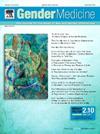Gender, Medicine, and Psychology
引用次数: 0
Abstract
This chapter focuses on the medical and psychological aspects of gender, beginning with a discussion on gender development. An unspoken assumption in much of the gender development work to date is the alignment of bodily sex with gender identity. Children who do not develop in accordance with societal expectations have historically been pathologized as not having achieved a critical developmental milestone. Only recently has transgender identity begun to be considered a valid developmental trajectory. Historically, transgender children have presented with heightened levels of depression and anxiety, among other signifiers of distress, including poor school performance and poor social integration. However, recent studies have shown that transgender children match their cisgender peer groups when raised in affirmed settings. The chapter then defines gender dysphoria, which is characterized by significant distress or difficulty functioning related to an incongruence between assigned sex and experienced gender identity. It also traces the history of treatment for transgender people, including medical and surgical interventions. Finally, the chapter considers the role gender has played over time in the diagnosis and treatment of mental health concerns.性别、医学和心理学
本章侧重于性别的医学和心理方面,首先讨论性别发展问题。迄今为止,在许多性别发展工作中,一个不言而喻的假设是,身体性别与性别认同是一致的。不按照社会期望发展的儿童历来被认为没有达到关键的发展里程碑。直到最近,跨性别身份才开始被认为是一种有效的发展轨迹。从历史上看,跨性别儿童表现出高度的抑郁和焦虑,以及其他痛苦的迹象,包括学习成绩差和社会融入能力差。然而,最近的研究表明,当跨性别儿童在肯定的环境中长大时,他们与顺性别同龄人的表现相当。然后,本章定义了性别焦虑,其特征是与指定性别和经验性别认同之间的不一致有关的显著痛苦或功能困难。它还追溯了变性人的治疗历史,包括医疗和手术干预。最后,本章考虑了性别在心理健康问题的诊断和治疗中长期发挥的作用。
本文章由计算机程序翻译,如有差异,请以英文原文为准。
求助全文
约1分钟内获得全文
求助全文

 求助内容:
求助内容: 应助结果提醒方式:
应助结果提醒方式:


